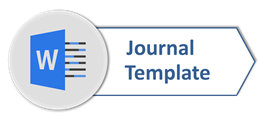Illocutionary Acts of Dave Chappelle’s Stand-up Comedy The Closer
Abstract
This study examines the use of illocutionary acts in Dave Chappelle's stand-up comedy The Closer, focusing on its micro classes and literal meanings. Utilizing the framework established by Searle (1969) and employing a qualitative methodology, this study collects the data through library research. The findings reveal that Dave Chappelle’s stand-up comedy uses four micro classes of illocutionary acts, consisting of assertive, directive, expressive, and commissive. Assertive acts become the most prevalent micro classes used by Dave Chappelle (604 data), indicating his authority delivery by asking questions, giving comments, or making requests. After that, directive acts are used to engage the audiences during the performance (74 data) by using personal anecdotes. Following that, expressive acts are utilized to show his emotional connection to the content (42 data) through conveying his psychological state. Finally, commissive acts are employed to indicate commitment on his personal concern (17 data) by making promises or expressing his intention. To conclude, this study provides better understanding of stand-up comedy as a performative speech blending humor with social commentary. Future study should explore audience reception to better understand comedic performances' societal impact.
Keywords: Illocutionary Acts, micro classes, stand-up comedy, Dave Chappelle.
Full Text:
PDFReferences
Adetunji, A. (2022). The interactional context of humor in Nigerian stand-up comedy. Pragmatics, 1-22.
Austin, J. L. (1975). How to Do Things with Words: Second Edition. J. O. Urmson, M. Sbisà, & M. Sbisà, Eds.; Vol. 1.
Astaman, & Rido. (2023). Direct commissive speech act in President Joe Biden’s address to congress. Teknosastik: Jurnal Bahasa dan Sastra, 21(2), 78-92.
Amelia, Afrianto, Samanik, Suprayogi, Pranoto, & Gulö. (2022). improving publlic speaking ability through speech. Journal of Social Sciences and Technology for Community Service (JSSTCS), 3(2), 322-330.
Creswell, J. W. (2014b). Research Design: Qualitative, Quantitative, And Mixed Methods Approaches 4 edition. Retrieved from
https://library.umw.ac.id/index.php?p=show_detail&id=1755&keywords=
Fadilah, R., & Kuswoyo, H. (2021). Transitivity analysis of presidential debate between Trump and Biden in 2020. Linguistics and Literature Journal, 2(2), 98-107.
Filani, I. (2015). Discourse types in stand-up comedy performances: An example of Nigerian stand-up comedy. European Journal of Humour Research, 3(1), 41-60.
Greenbaum, A. (1999). Stand-up comedy as rhetorical argument: An investigation of comic culture. Humor: International Journal of Humor Research, 12(1).
McCarthy, T. (2021). Dave Chappelle’s 5 most controversial jokes from “The Closer” Netflix special. Fox News. Retrieved from https://www.foxnews.com/entertainment/5-of-dave-chappelles-most-controversial-jokes-from-the-closer-netflix-special
Nancy, C., Nganga, S., & Kandagor, M. (2023). Forms of humour created through maxim flouting in Churchill Show comedy performances. Scholars Journal of Arts, Humanities and Social Sciences, 11(03), 105-119.
Pranoto B.E., Suprayogi. (2020). Incorporating 9GAG memes to develop EFL learners’ speaking ability and willingness to communicate. IJEE (Indonesian Journal of English Education), 7(2), 130-144.
Sari, P. I., & Pranoto, B. E. (2020). An analysis of illocutionary act and perlocutionary act towards the Queen Elizabeth’s speech entitled we will succeed and better days will come. Linguistics and Literature Journal, 3(1), 24-33.
Searle, J. R. (1969). Speech Acts. Cambridge University Press. Retrieved from Https://Doi.Org/10.1017/CBO9781139173438.
DOI: https://doi.org/10.33365/ts.v22i2.4471
Refbacks
- There are currently no refbacks.
Copyright (c) 2024 Sahat Parulian Prantinus Kaban, Akhyar Rido

This work is licensed under a Creative Commons Attribution-ShareAlike 4.0 International License.
Teknosastik: Jurnal Bahasa dan Sastra
Publisher: Universitas Teknokrat Indonesia
Address: Zainal Abidin Pagaralam Street 9-11, Bandar Lampung, Indonesia
Website: https://ejurnal.teknokrat.ac.id/index.php/teknosastik/index

Creative Commons Attribution-ShareAlike 4.0 International License






